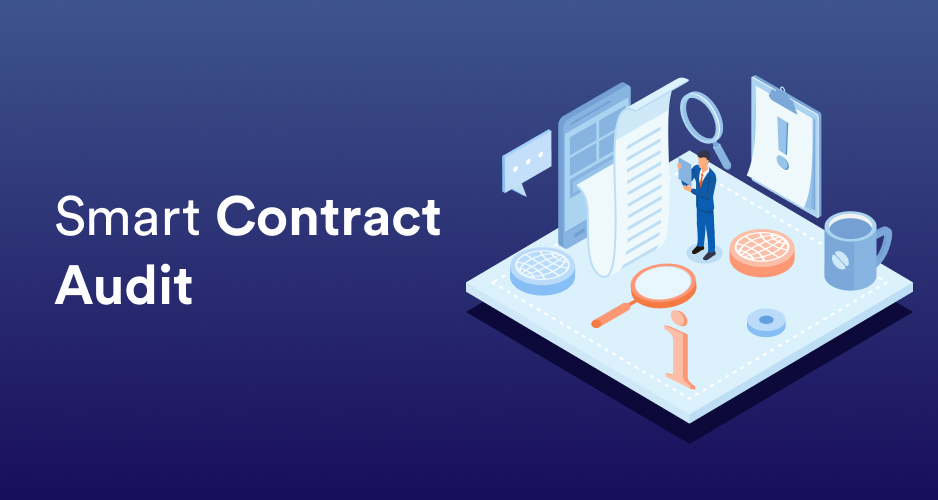
After Nick Szabo's description of smart contracts in 1994, the concept was further developed and popularized in the blockchain community. The first practical implementation of smart contracts was in the form of a decentralized platform for digital currency transactions, called Bitcoin, which was launched in 2009.
However, it wasn't until the launch of the Ethereum blockchain in 2015 that smart contracts became widely used. Ethereum introduced the ability to program and execute smart contracts on its blockchain, allowing developers to create decentralized applications (dapps) that run on the Ethereum network. Since then, the use of smart contracts has grown significantly and they are now used in a variety of applications, including supply chain management, financial contracts, and voting systems, among others.
Smart contracts meaning
A smart contract is a self-executing contract with the terms of the agreement between buyer and seller being directly written into lines of code. It is a computer program that automatically executes the terms of a contract when certain predetermined conditions are met. Smart contracts run on blockchain technology, allowing for secure, transparent, and tamper-proof execution of the contract. They eliminate the need for intermediaries, such as lawyers or banks, to enforce the agreement, as the terms of the contract are automatically executed by the code. This allows for faster, cheaper, and more secure transactions, as the execution of the contract is automatic and impartial, reducing the risk of fraud or corruption.
How can smart contracts be hacked or tampered with?
Smart contracts have the potential to be tampered with or hacked, just like any other computer program. Some common ways in which smart contracts can be vulnerable to hacking include
-
Code vulnerabilities:
If a smart contract has a flaw in its code, a hacker may be able to exploit it to steal funds or manipulate the contract in their favor. -
Unchecked external input:
If a smart contract takes input from an external source, such as an API, a hacker could potentially feed the contract malicious data and manipulate the outcome. -
Lack of security testing:
If a smart contract has not been thoroughly tested for security vulnerabilities, it may contain undiscovered flaws that can be exploited by a hacker. -
Inadequate access controls:
If a smart contract does not have proper access controls, a hacker may be able to gain unauthorized access to its code or funds. -
Improper key management:
If a smart contract is owned by a single user with a single private key, a hacker who gains access to that key may be able to compromise the contract.
In conclusion, smart contracts, like any other computer program, are susceptible to hacking and security breaches. However, by following best practices for security and code auditing, the risk of such incidents can be reduced.
What is a smart contract audit?
A smart contract audit is a thorough review and evaluation of a smart contract's code and design. The goal of a smart contract audit is to identify and address any potential security vulnerabilities or issues with the code that could result in loss of funds or other unintended consequences.
Types of smart contracts auditing
There are several types of smart contract audits, including
-
Security audit:
A security audit is focused on identifying potential security vulnerabilities in the smart contract code, such as potential exploits or bugs. -
Performance audit:
A performance audit evaluates the efficiency and scalability of the smart contract code, identifying any bottlenecks or potential performance issues. -
Functional audit:
A functional audit checks that the smart contract code meets the specified requirements and performs as intended. -
Code review:
A code review is a manual examination of the smart contract code to identify any issues with the code, such as security vulnerabilities or inefficient code. -
Compliance audit:
A compliance audit ensures that the smart contract code complies with relevant laws, regulations, and industry standards. -
Penetration testing:
Penetration testing is a simulated attack on the smart contract code to identify and test the resilience of the contract against malicious attacks. -
Formal verification:
Formal verification uses mathematical techniques to prove the correctness of the smart contract code, ensuring that it operates as intended under all circumstances.
It's important to note that different types of smart contract audits may be combined or customized to meet the specific needs and requirements of each project.
Which steps are involved in a smart contract audit?
The steps involved in a smart contract auditing process typically include
-
Code review:
A thorough examination of the smart contract code to identify any security vulnerabilities, code efficiency, and best practices. -
Functionality testing:
Testing the smart contract to ensure it performs as intended and all conditions are met. -
Threat modeling:
Identifying potential threats to the smart contract and evaluating the likelihood and impact of each threat. -
Vulnerability scanning:
Running automated tools to scan the smart contract code for potential security vulnerabilities. -
Testing and simulation:
Running simulations to test the smart contract under various conditions and scenarios. -
Documentation review:
Verifying that the smart contract documentation is clear, comprehensive, and up-to-date. -
Final report:
Compiling a report that includes a detailed description of any issues found during the audit, as well as recommendations for resolving them.
The exact steps involved in a smart contract audit may vary depending on the specific needs and requirements of the project, as well as the type of audit being performed (security audit, performance audit, functional audit, etc.).
Conclusion
In conclusion, it is vital to regularly audit smart contracts to ensure their security and reliability. It is important to remember that auditing is a complex process that requires specialized skills and knowledge, and we highly recommend seeking professional help for the best results. Nu10’s team of highly skilled professionals and blockchain auditors will help you to ensure the success of your smart contract!
About Author
Phaneender Aedla
Phaneender Aedla has over two decades of experience spread across both large organisations like Wipro, Happiest Minds, and Aon, where he held senior leadership positions, and startups, where he co-founded a catastrophe risk analytics company, EigenRisk Inc. Phaneender has a B.Tech degree in Computer Science and Engineering from IIT Delhi, and an MBA from IIM Bangalore









